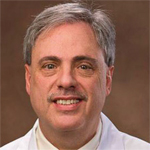The left-handed piece was lovely and, at its completion, Fleisher looked exhausted. He paused for a moment, took a deep breath, and then received one of the most admiring and rousing standing ovations that I have ever heard.
It was at that moment that I realized how disability can lead to secondary gain. Fleisher did not simply cope with disability. He transcended and negated it and, when one path in music seemed to close down, he took another. For Fleisher, disability was a long detour but not a dead end. Fleisher enriched his career by teaching, composing, and conducting. He gained the love and approbation of students who have called him the Obi-Wan Kenobi of piano teachers. When he holds a rare solo recital, he gains by enthralling and inspiring an audience with courage and heroism in a calling that is not often thought to require such attributes.
I do not know whether I have a Fleisher in my practice, but I think I know a way to find out. When I see a patient with disability, I will not ask my usual question about loss. Instead, I will take another direction and inquire, “What are things that you can now do that you could not do before you had arthritis?”
I await the answers.
It is time for providers like me to discover the real meaning of secondary gain.
Dr. Pisetsky is physician editor of The Rheumatologist and professor of medicine and immunology at Duke University Medical Center in Durham, N.C.
